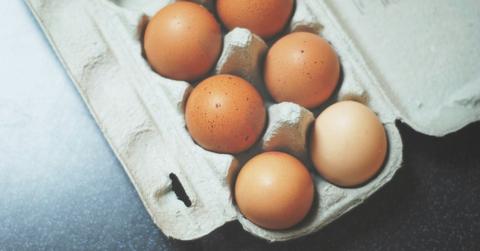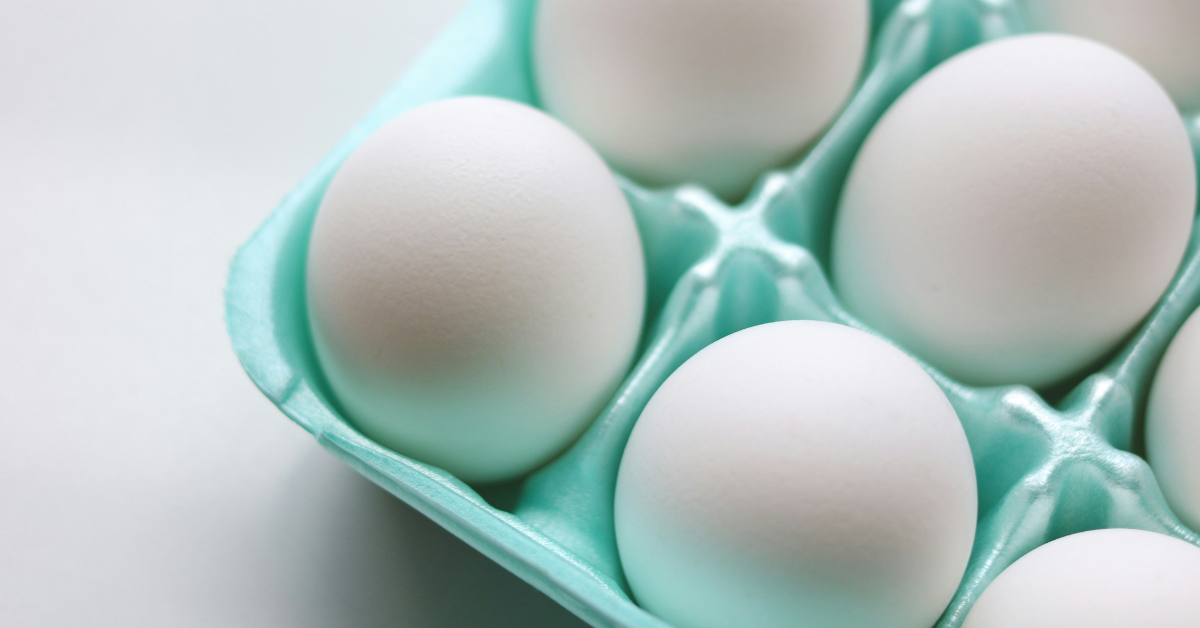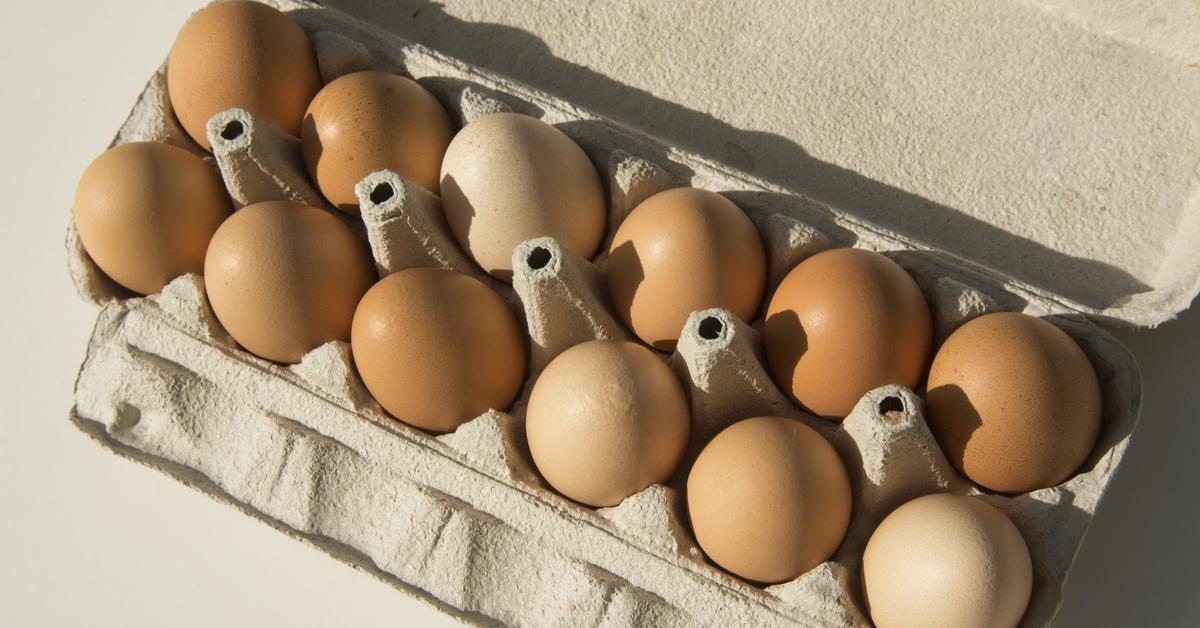FDA Updates Egg Recall To Highest Risk Level: Details Here
This is the second egg recall in three months.
Updated Dec. 23 2024, 3:29 p.m. ET

UPDATE: Dec. 23, 2023, 3:38 p.m. ET: the previously announced voluntary egg recall from Handsome Brook Farms has been updated to the highest risk level by the U.S. Food and Drug Administration (FDA), per Newsweek. The recall is for 10,800 units of eggs sold under the Kirkland Signature brand name. The purpose of the recall was, unfortunately, potential salmonella contamination.
Even worse, this is not the first egg recall in 2024 for salmonella concerns — but it will hopefully be the last.
Previously, on Sept. 30, 2024, the FDA issued the highest possible classification for a voluntary recall of eggs from earlier in September.
Keep reading to learn more about the FDA and CDC's egg recall, including which states are impacted by the contaminated eggs.

The FDA published a voluntarily recall on certain eggs from Costco due to salmonella concerns.
On Nov. 27, 2024, Handsome Brook Farms issued a voluntary recall of the Organic Pasture Raised 24-Count Eggs sold under the Kirkland Signature brand name, per the recall notice. These eggs were distributed to twenty-five Costcos in five U.S. states beginning on Nov. 22.
The Organic Pasture Raised 24-Count Eggs recall "only applies to eggs with the Julian code 327 and a Use By Date of Jan 5, 2025."
On Dec. 23, 2024, the FDA updated the recall to the highest hazard level, which is a Class 1. A Class 1 hazard is defined as "a situation in which there is a reasonable probability that the use of, or exposure to, a violative product will cause serious adverse health consequences or death," per the FDA.
So far, there are no illnesses associated with the recall. Handsome Brook Farms determined there was a need for a voluntary recall after discovering eggs not intended for retail distribution were in fact packaged and distributed, per the FDA notice.
The FDA issued an egg recall due to salmonella concerns in September 2024 as well.
An egg recall was issued in September 2024 after more than five dozen people fell ill after consuming contaminated eggs from Milo's Poultry Farms, LLC. The recall spread across nine different states, and USA Today says that the products include eggs that were sold from May 23 to Aug. 10.
While there have not been any deaths as of the time of publication, two dozen people did fall seriously ill and required hospitalization, according to the CDC's Food Safety Alert.
The FDA's decision to update the CDC's recall to a Class I recall in October highlighted the potential health risks that eating these eggs could have on someone's health since this designation is reserved for the most serious circumstances.
The CDC says that salmonella poisoning symptoms can range in severity and include everything from stomach cramps to fever. In extreme cases, consuming products contaminated with salmonella can even result in death.

These are the brands being recalled as part of the FDA alert:
Thankfully, the salmonella outbreak in November 2024 has been contained to the Organic Pasture Raised 24-Count Eggs sold under Kirkland Signature brand.
These are the states where the recall is taking place:
- Alabama
- Georgia
- North Carolina
- South Carolina
- Tennessee
What should you do if you have some of the recalled eggs?
Those who have purchased the recalled eggs are advised to dispose of the product immediately. Furthermore, the FDA advises people to sanitize any surfaces that may have come into contact with the eggs.
If you're experiencing symptoms of salmonella poisoning, the CDC says you should contact your healthcare provider immediately, especially for those experiencing more severe symptoms like a fever above 102 degrees or signs of dehydration.
While shopping from reputable retailers typically holds a lower risk of foodborne illness, shoppers can lower their chances of getting sick thanks to contaminants like salmonella by eating a plant-based diet and consuming egg alternatives, like vegan eggs.
This article, originally published on Oct. 7, 2024, has been updated to reflect a new voluntary egg recall by the FDA and an updated risk level.

